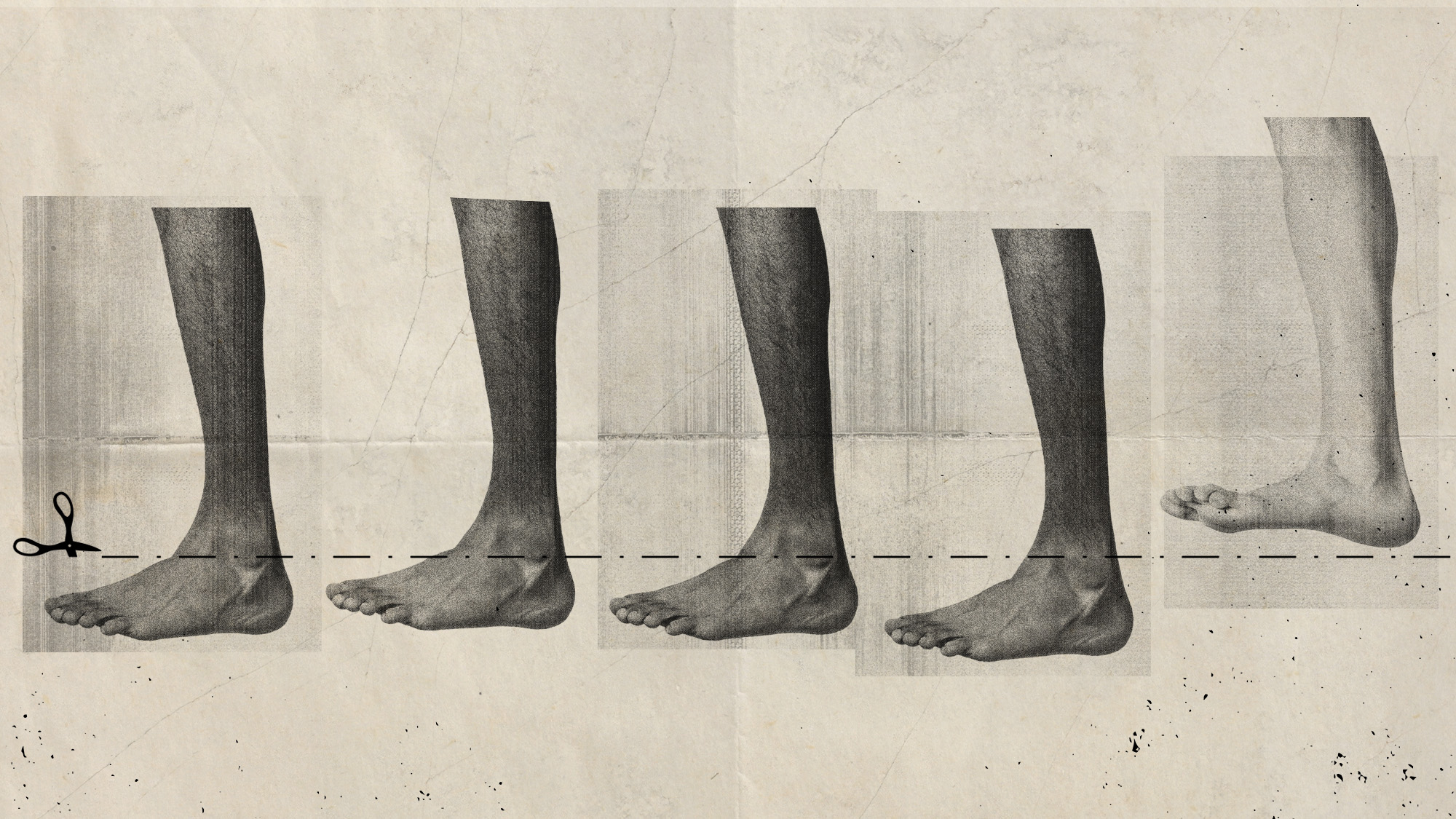Sharp rise in ‘multimorbidity’ blamed on obesity and lack of exercise
GPs struggling to cope with number of patients suffering multiple health problems fuelled by unhealthy lifestyles

A free daily email with the biggest news stories of the day – and the best features from TheWeek.com
You are now subscribed
Your newsletter sign-up was successful
The increasingly unhealthy lifestyles of Britons are leaving GPs struggling to deal with a “tidal wave” of patients with multiple health problems, experts have warned.
One in three people over the age of 50 now have two or more chronic health conditions, known as multimorbidity - twice as many as did just ten years ago, according to a new report from the Academy of Medical Sciences. Meanwhile, an increasing number of young people are being diagnosed with diseases typically associated with older adults, including type two diabetes and heart disease.
The reports says that the NHS is struggling to cope with the flood of patients with multiple illnesses, for whom the government-mandated ten-minute slot for GP appointments is not long enough.
The Week
Escape your echo chamber. Get the facts behind the news, plus analysis from multiple perspectives.

Sign up for The Week's Free Newsletters
From our morning news briefing to a weekly Good News Newsletter, get the best of The Week delivered directly to your inbox.
From our morning news briefing to a weekly Good News Newsletter, get the best of The Week delivered directly to your inbox.
Younger people diagnosed Millennials are “set to be the fattest generation on record”, warns The Daily Telegraph, which notes that obesity is linked to 90% of type two diabetes cases. "GPs are struggling to cope with a 'tidal wave' of ever younger patients with multiple health problems," says the newspaper.
Professor Melanie Davies, from the University of Leicester, said: “There are now over 500 children with type two diabetes. A child or adolescent with type two diabetes was almost unheard of just 20 years ago. Within a generation it has changed really quickly.”
The rate at which diabetes is being diagnosed among young people is “scary”, Davies added.
Experts also blame unhealthy diets and lifestyles for the increase in "multimorbidity" among older people, although increased life expectancies is also a factor.
A free daily email with the biggest news stories of the day – and the best features from TheWeek.com
Doctors struggling Professor Stephen MacMahon, who chaired the panel that wrote the report, says GPs need more time to properly help patients suffering from several conditions. “It’s extremely difficult to manage a patient with half a dozen diseases in ten minutes. What happens is multiple consultations, each focusing on the individual diseases,” he said.
The problem is not confined to the UK, notes the Financial Times. MacMahon says the new report “should be the tipping point of recognising that multimorbidity is an enormous threat to global health”. There are no accurate figures for the number of people suffering more than one illness, but the report estimates that it could be as many as a billion worldwide.
The report also suggests that living with multiple conditions, and living an unhealthy lifestyle, could be related to depression, though more research into the link is needed. One study has shown that people with depression are 37% more likely to develop type two diabetes than those without.
-
 Palestine Action and the trouble with defining terrorism
Palestine Action and the trouble with defining terrorismIn the Spotlight The issues with proscribing the group ‘became apparent as soon as the police began putting it into practice’
-
 Why is the Trump administration talking about ‘Western civilization’?
Why is the Trump administration talking about ‘Western civilization’?Talking Points Rubio says Europe, US bonded by religion and ancestry
-
 Quentin Deranque: a student’s death energizes the French far right
Quentin Deranque: a student’s death energizes the French far rightIN THE SPOTLIGHT Reactions to the violent killing of an ultraconservative activist offer a glimpse at the culture wars roiling France ahead of next year’s elections
-
 Obesity drugs: Will Trump’s plan lower costs?
Obesity drugs: Will Trump’s plan lower costs?Feature Even $149 a month, the advertised price for a starting dose of a still-in-development GLP-1 pill on TrumpRx, will be too big a burden for the many Americans ‘struggling to afford groceries’
-
 The battle of the weight-loss drugs
The battle of the weight-loss drugsTalking Point Can Novo Nordisk and Eli Lilly regain their former stock market glory? A lot is riding on next year's pills
-
 A new subtype of diabetes was found and it may require different treatment
A new subtype of diabetes was found and it may require different treatmentUnder the radar It is prevalent in Black Africans and Americans
-
 Food may contribute more to obesity than exercise
Food may contribute more to obesity than exerciseUnder the radar The devil's in the diet
-
 Why women are most at risk in Africa's obesity crisis
Why women are most at risk in Africa's obesity crisisUnder the Radar Stigma and lack of access to medication draws comparisons with HIV epidemic
-
 Why are people microdosing Ozempic?
Why are people microdosing Ozempic?In The Spotlight Tiny doses of the weight-loss drug can sidestep its unpleasant side effects, say influencers. But is customising the dose a good idea?
-
 Dark chocolate tied to lower diabetes risk
Dark chocolate tied to lower diabetes riskSpeed Read The findings were based on the diets of about 192,000 US adults over 34 years
-
 Diabetic amputations surge among Black and Latino Americans
Diabetic amputations surge among Black and Latino AmericansThere is an epidemic of diabetes-related complications, and minority communities are being hit the hardest